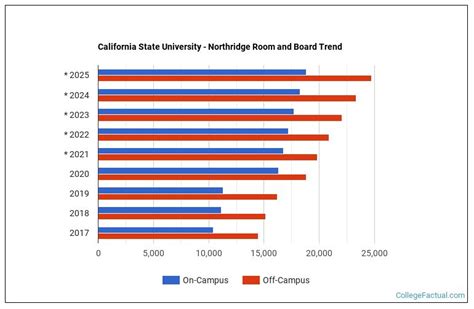Embarking on a higher education journey is a significant investment, and understanding the financial implications is crucial. Northridge University, renowned for its academic excellence and commitment to student success, offers a comprehensive overview of its cost structure to empower prospective students in making informed decisions.

Tuition and Fees: A Breakdown
Northridge University’s tuition and fees vary depending on your program of study, residency status, and other factors. Here’s a detailed breakdown:
Undergraduate Tuition
- California Residents: $8,364 per year
- Out-of-State Residents: $22,704 per year
Graduate Tuition
- Business: $21,312 per year
- Education: $18,960 per year
- Health Sciences: $19,800 per year
University Fees
- Registration Fee: $346 per semester
- Technology Fee: $173 per semester
- Student Health Fee: $113 per semester
Additional Expenses to Consider
Beyond tuition and fees, additional expenses associated with attending Northridge University should be factored into your financial planning. These include:
- Housing: On-campus housing options range from $10,000 to $15,000 per academic year. Off-campus housing costs vary depending on location and amenities.
- Dining: Meal plans are available, with costs ranging from $2,000 to $4,000 per academic year. Alternatively, students can cook their own meals or explore various dining options on and off campus.
- Books and Supplies: Textbooks and course materials typically cost between $500 and $1,000 per semester.
- Transportation: Public transportation passes are available for approximately $450 per semester. Students who own vehicles may also incur parking fees.
- Personal Expenses: Clothing, entertainment, and other personal expenses should be allocated accordingly.
Financial Aid: Making Education Accessible
Northridge University is committed to making higher education accessible to deserving students. A variety of financial aid options are available, including:
- Scholarships: Merit-based scholarships are awarded to students with exceptional academic achievement, leadership potential, and financial need.
- Grants: Need-based grants do not require repayment and are awarded based on financial need.
- Loans: Student loans are available to help students cover the cost of tuition, fees, and other expenses.
Common Mistakes to Avoid
- Underestimating the Total Cost: Ensure you thoroughly research all potential expenses and create a realistic budget.
- Ignoring Financial Aid Deadlines: Submit your financial aid applications early to maximize your chances of receiving assistance.
- Borrowing More Than You Can Afford: Carefully consider your financial situation and only borrow what you can reasonably repay.
- Not Exploring Payment Plan Options: Northridge University offers payment plans that can help spread out tuition and fee payments.
- Failing to Budget and Track Expenses: Create a detailed budget and monitor your spending to stay on track financially.
Exploring Your Investment
Investing in higher education is an investment in your future. Northridge University’s cost structure provides a clear understanding of the financial commitment required to pursue your academic goals. By carefully planning, exploring financial aid opportunities, and making informed decisions, you can unlock the doors to a brighter future.
Questions to Ask Yourself
- What is the total cost of my desired program of study, including tuition, fees, and additional expenses?
- Am I eligible for any scholarships or grants based on my academic record and financial need?
- How much student loan debt am I willing and able to take on?
- Are there any payment plan options available to assist with the cost of attendance?
- How can I effectively budget and manage my expenses to ensure financial success during my time at Northridge University?
Tables for Easy Reference
Table 1: Undergraduate Tuition and Fees
| Residency | Annual Tuition |
|---|---|
| California Residents | $8,364 |
| Out-of-State Residents | $22,704 |
Table 2: Graduate Tuition
| Program | Annual Tuition |
|---|---|
| Business | $21,312 |
| Education | $18,960 |
| Health Sciences | $19,800 |
Table 3: University Fees
| Fee | Per Semester |
|---|---|
| Registration Fee | $346 |
| Technology Fee | $173 |
| Student Health Fee | $113 |
Table 4: Estimated Additional Expenses
| Expense | Estimated Cost |
|---|---|
| Housing | $10,000 – $15,000 per year |
| Dining | $2,000 – $4,000 per year |
| Books and Supplies | $500 – $1,000 per semester |
| Transportation | $450 per semester (public transportation pass) |
| Personal Expenses | Varies depending on lifestyle |
